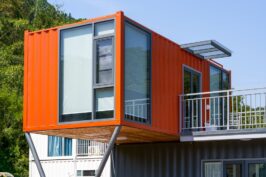Embracing Slow Living: A Path to Mindful Living
Table of contents

Understanding the Concept of Slow Living
Slow living is a lifestyle choice that emphasizes a deeper connection with life and a more mindful approach to everyday activities. Embracing slow living means prioritizing quality over quantity and taking time to savor each moment. This approach is a reaction to the fast-paced, high-pressure lifestyle that many people find themselves trapped in. By slowing down, individuals can reduce stress, enhance their well-being, and forge a deeper connection with their surroundings.
The origins of slow living can be traced back to the slow food movement of the 1980s, which began in Italy as a protest against fast food. This movement has since expanded to encompass all areas of life, advocating for a more deliberate and thoughtful pace. Slow living encourages people to be present in the moment and to engage fully with the world around them.
Benefits of Adopting a Slow Lifestyle
One of the primary benefits of slow living is improved mental health. By reducing the constant pressure to keep up with a hectic schedule, individuals can lower their stress levels and enjoy a more peaceful state of mind. Mindful living also encourages individuals to focus on what truly matters, fostering a sense of contentment and satisfaction.
Additionally, a slow lifestyle can lead to stronger relationships. By prioritizing time with loved ones and engaging in meaningful conversations, individuals can strengthen their connections with others. This can result in a more supportive and fulfilling social life. Embracing slow living also allows for more time to pursue passions and hobbies, contributing to a more balanced and rewarding life.
How to Start Your Journey to Mindful Living
Embarking on a path to mindful living begins with small yet intentional changes. Start by identifying areas of your life where you feel overwhelmed or rushed. Consider simplifying your schedule by cutting down on unnecessary commitments and focusing on activities that bring joy and fulfillment.
Incorporating mindfulness practices, such as meditation or yoga, can also support your transition to slow living. These practices encourage self-awareness and help individuals stay grounded in the present moment. Additionally, consider adopting a more minimalist approach to your possessions. By decluttering and simplifying your living space, you can create an environment conducive to relaxation and reflection.
Challenges and Solutions in Slow Living
While slow living offers numerous benefits, it can also present challenges. One common obstacle is societal pressure to maintain a fast-paced lifestyle. Friends, family, and colleagues may not understand your decision to embrace a slower pace, which can lead to misunderstanding or even criticism.
To overcome these challenges, it’s important to communicate your intentions clearly and set boundaries with those around you. Remember that slow living is a personal choice, and it’s okay to prioritize your well-being over societal expectations. Additionally, try to connect with like-minded individuals who share your commitment to a mindful lifestyle. Online communities and local groups can provide valuable support and encouragement.
Conclusion: The Transformative Power of Slow Living
In conclusion, embracing slow living is a powerful way to cultivate mindfulness and enhance overall well-being. By prioritizing quality over quantity and taking time to savor each moment, individuals can reduce stress, strengthen relationships, and discover greater fulfillment. While the journey may present challenges, the benefits of slow living are well worth the effort. Remember, the path to mindful living is a personal one, and it begins with a single, intentional step.
FAQs About Slow Living
**What is slow living?**
Slow living is a lifestyle choice that emphasizes mindfulness, quality over quantity, and a deep connection with life’s experiences.
**How can I start slow living?**
Begin by simplifying your schedule, incorporating mindfulness practices, and decluttering your living space.
**What are the benefits of slow living?**
Benefits include reduced stress, improved mental health, stronger relationships, and more time for passions and hobbies.
**Is slow living compatible with a busy lifestyle?**
Yes, with intentional planning and prioritizing, slow living can be incorporated into a busy lifestyle.
**Why is slow living important?**
Slow living is important because it encourages mindfulness, reduces stress, and fosters a deeper connection with the world.








